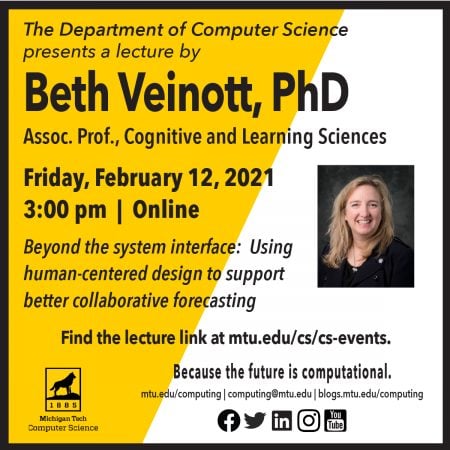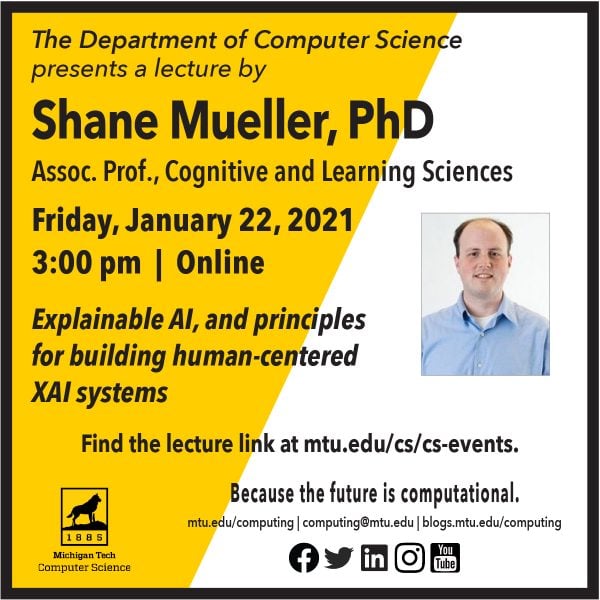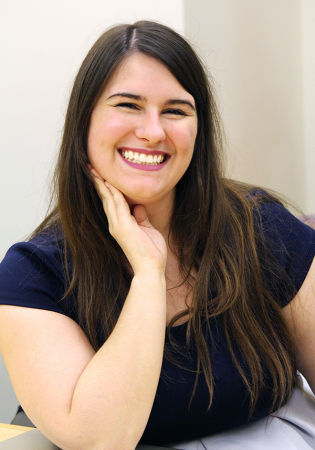
The Department of Computer Science will present a lecture by Dr. Elizabeth Veinott on Friday, February 12, 2021, at 3:00 p.m.
Veinott is an associate professor in the Cognitive and Learning Sciences department. She will present, “Beyond the system interface: Using human-centered design to support better collaborative forecasting.”
Speaker Biography
Elizabeth Veinott is a cognitive psychologist working in technology-mediated environments to improve decision making, problem solving and collaboration. She directs Michigan Tech’s Games, Learning and Decision Lab and is the lead for the Human-Centered Computing group of Michigan Tech’s Institute of Computing and Cybersystems (ICC).
She has been active in the ACM’s SIGCHI and on the conference organizing committees for CHI Play and CSCW. Prior to joining Michigan Tech in 2016, she worked as a principal scientist in an industry research and development lab and as a contractor at NASA Ames Research Center. Her research has been funded by NIH, Army Research Institute, Army Research Lab, Air Force Research Laboratory, and IARPA.
Lecture Abstract
Teams use technology to help them make judgments in a variety of operational environments. Collaborative forecasting is one type of judgment performed by analyst teams in weather, business, epidemiology, and intelligence analysis. Research related to collaborative forecasting has produced mixed results.
In her talk, Veinott will describe a case of using cognitive task analysis to develop and evaluate a new forecast process and tool. The method captured analysts’ mental models of game-based forecasting problems, and allowed the process to co-evolve with the system design. The tool was tested in a simulation environment with expert teams conducting analyses over the course of hours and compared to a control group. Challenges and lessons learned will be discussed, including implications for human-centered design of collaborative tools.






